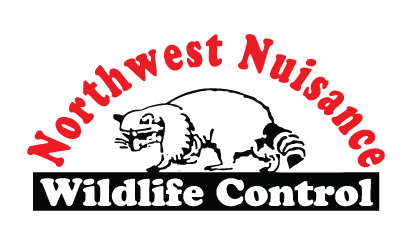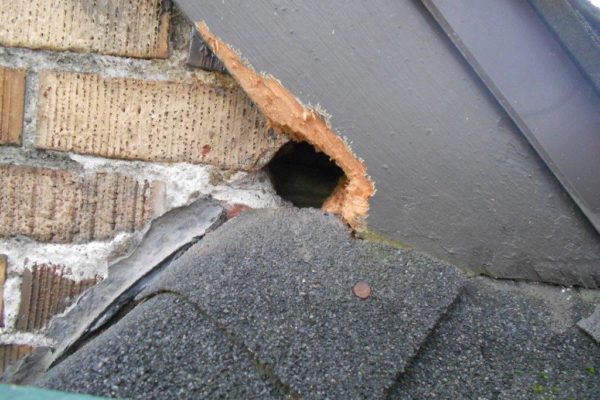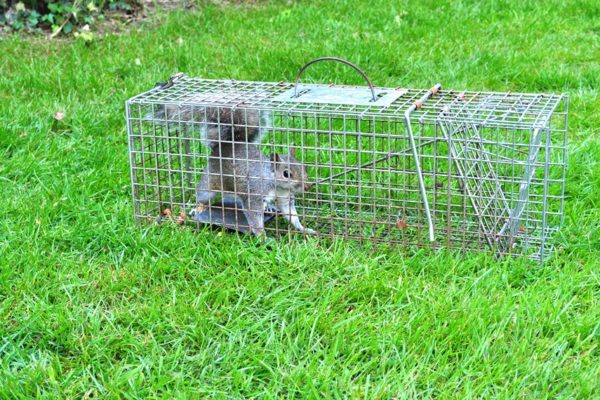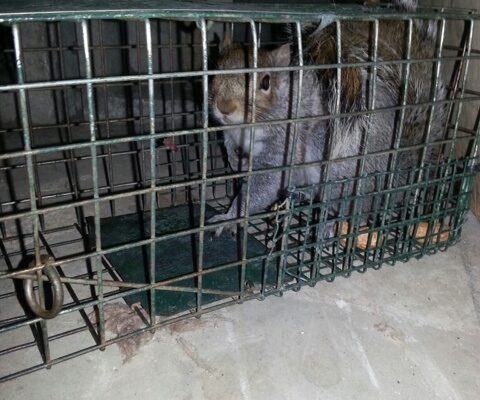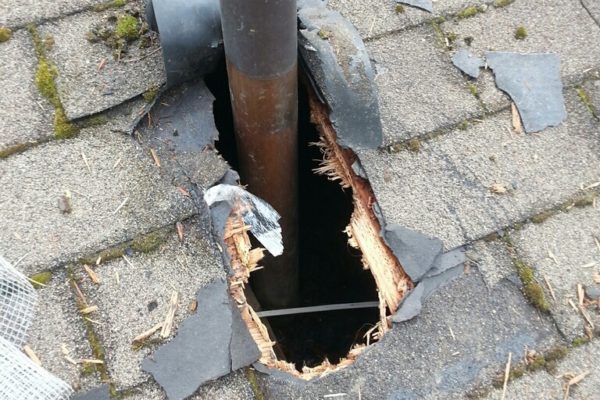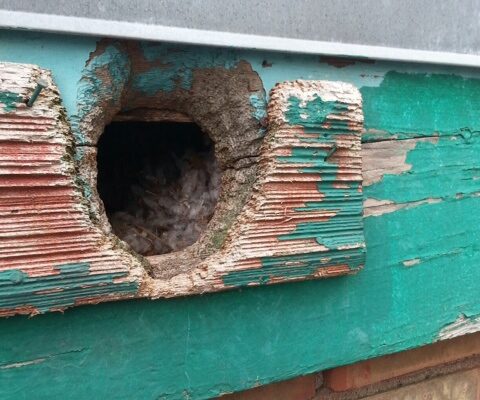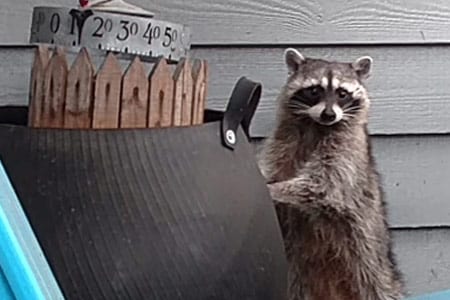Welcome to NW Nuisance Wildlife Control, your go-to solution for tackling those pesky squirrel intrusions. We understand the frustration and unease that accompanies squirrel infestations, and we’re here to bring you relief. With our extensive experience and expertise in wildlife management, we specialize in live trapping, effective animal control, meticulous exclusion measures, and thorough cleanup. Whether you’re grappling with invasive Eastern Grey Squirrels or wily Douglas Squirrels that just won’t quit, our team of seasoned professionals is dedicated to swiftly and humanely resolving your squirrel woes. Count on our licensed and highly knowledgeable trappers to tailor innovative solutions that address your unique situation. Choose NW Nuisance Wildlife Control for unrivaled, reliable, and professional squirrel removal services.
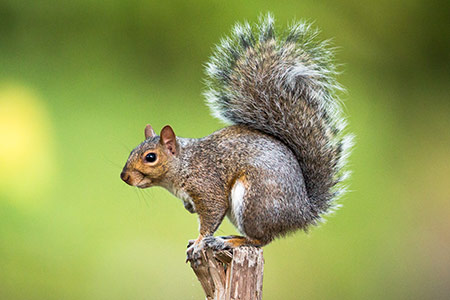
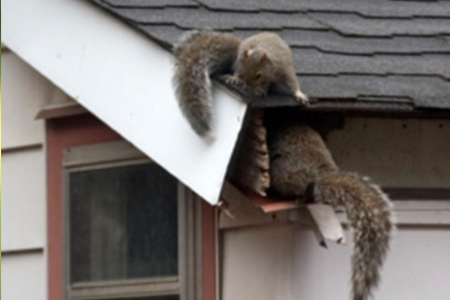
Eastern Grey Squirrel
Washington has several species of indigenous squirrels. The two most common causes of a squirrel infestation in Central and Western Washington are the Eastern Grey Squirrel and Douglas Squirrels. Eastern grey squirrels, an introduced invasive species, will often outcompete native squirrels for natural resources driving the native species out. Douglas squirrels (pineys) are smaller and distinguished by a bronze reddish color. They are aggressively persistent at invading structures. Squirrel removal will help to protect your structures.
Douglas Squirrels
Douglas Squirrels have access points that are much harder to identify than grey squirrels. Squirrels chew into structures and can be highly destructive. They can chew through almost any building material to access attics or crawl spaces to have their young and cache food and chews through electrical wires. The Eastern gray squirrel can have 2 litters per year (May-July) with 2-5 pups per litter. Douglass squirrels can have 1-2 litters per year with 3-7 pups per litter. Additionally, squirrel entry points can pave the way for other pests such as rats, mice, birds and other rodents.
About Us
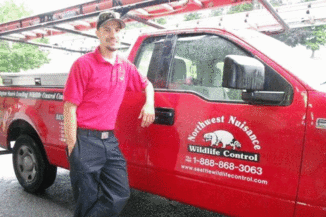
NNWC, established in 1985 is one of the oldest and most trusted wildlife removal companies serving the PNW. We specialize in live trapping, animal control, exclusion and clean up.
We are licensed by the Washington Department of Fish and Wildlife to manage a variety of wildlife conflicts that include: raccoons, squirrels, opossums, beavers, nutria, river otters, mountain beavers, bats, skunks, bobcats and coyotes. We specialize in live animal removal. NNWC serves both residential and commercial customers offering solutions tailored to meet your specific nuisance wildlife conflict needs.
Our trappers have Bachelor of Arts degrees from the University of Idaho in Wildlife Resources and University of Southern California in Environmental Science. Collectively we have over 50 year’s wildlife management experience. Whatever the wildlife conflict we have the experience, knowledge and skill to humanely and professionally solve your problem.
Call us at 425 820-7476 to talk about the squirrel removal process or you can email us at NNWC1985@willardspestcontrol.com
Frequently Asked Questions (FAQ)
Q: What is a “Wildlife Control Operator” or “WCO”?
A: A Wildlife Control Operator (or “WCO”) has a license from the Department of Fish and Wildlife that allows them trap, capture, and remove unclassified wildlife or small game from private property.
Q: What are your fees?
A: Service fees vary greatly depending on the task at hand. Please call us to receive a quote over the phone. If the situation requires us to visit the site before offering a quote, we will tell you this during the initial call
Q: What do you do with the animals that you catch?
A: All nuisance wildlife control operators in the state of Washington are required by law to euthanize the animals caught on private property. Nuisance wildlife cannot be transported and relocated/released.
Q: Do you offer consultation services?
A: Yes. Please call us and we will gladly discuss the situation at hand.
Q: Are you licensed by the state?
A: Yes. We are licensed by the State of Washington and by the Washington Department of Fish and Wildlife. We are also bonded and insured.
Q: Do you also control ants, spiders, scorpions, bugs and termites?
A: Yes, please call the pest control division of our company, Willard’s Pest Control at (425) 820-1980.
Q: Do you control problem birds?
A: Yes, please call our “sister company”, Bird Busters
Q: We have something trapped in our attic/stove vent/fireplace. Can you get it out?
A: More than likely, yes. We commonly remove birds, rats, squirrels, raccoons and other animals from attics, crawlspaces, stove vents, fireplaces and other locations in homes, garages and sheds.
Q: Do you remove dead animals from walls, attics, etc?
A: Yes. We can usually find and remove dead animals from inside structures. Please call for price quote.
Q: Can you pick up a dead animal from my yard or inside the house?
A: Yes. We offer dead animal removal and disposal services. Please call for price quote.
Q: Do you have anything to get rid of the smell from dead animals and skunks?
A: Yes. Please call us regarding the specifics of your odor removal needs.
How destructive can squirrels be?
Squirrels can be highly destructive creatures. They have strong teeth and jaws that allow them to chew through various materials, causing damage to structures and property. It’s important to address squirrel infestations promptly to minimize their destructive impact.
What materials can squirrels chew through?
Squirrels have the ability to chew through a wide range of materials. They can gnaw through wood, including siding, fascia boards, and even structural beams. Additionally, squirrels can chew through insulation, drywall, plastic pipes, electrical wires, and other building materials. Their chewing behavior poses a risk of structural damage and potential safety hazards.
Can squirrel entry points attract other pests?
Yes, squirrel entry points can pave the way for other pests such as rats, mice, birds, and other rodents. Once a squirrel has created an access point, it can provide an entry for other unwanted pests to enter your property.
Don’t let a neglected crawlspace or attic cause problems for your home!
Our team provides expert crawlspace cleanouts, insulation removal, and odor control to keep your space safe, dry, and pest-free.
